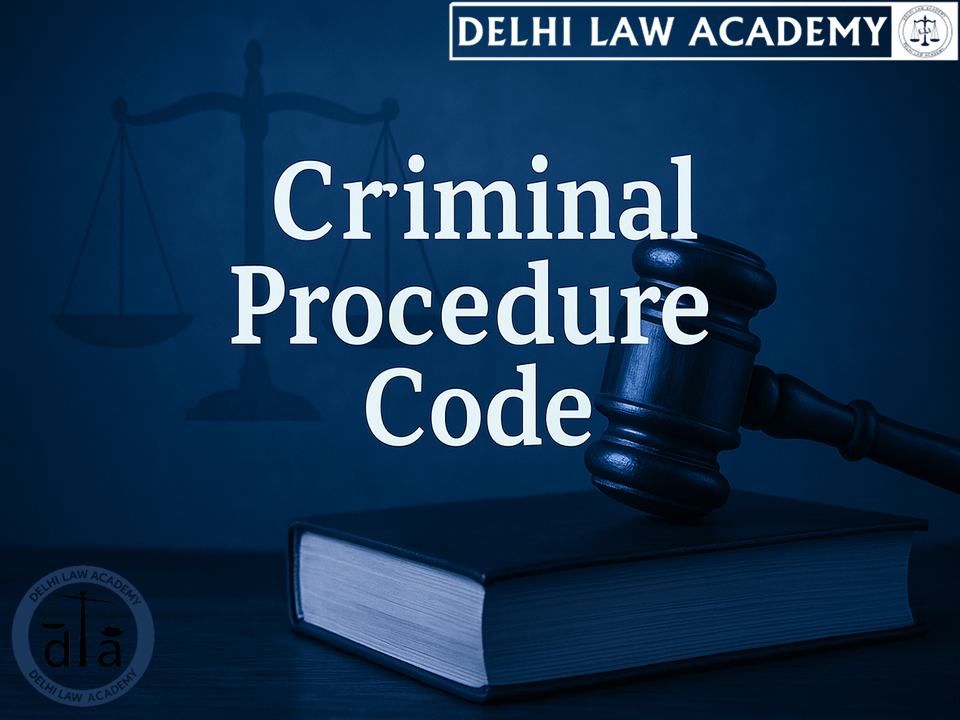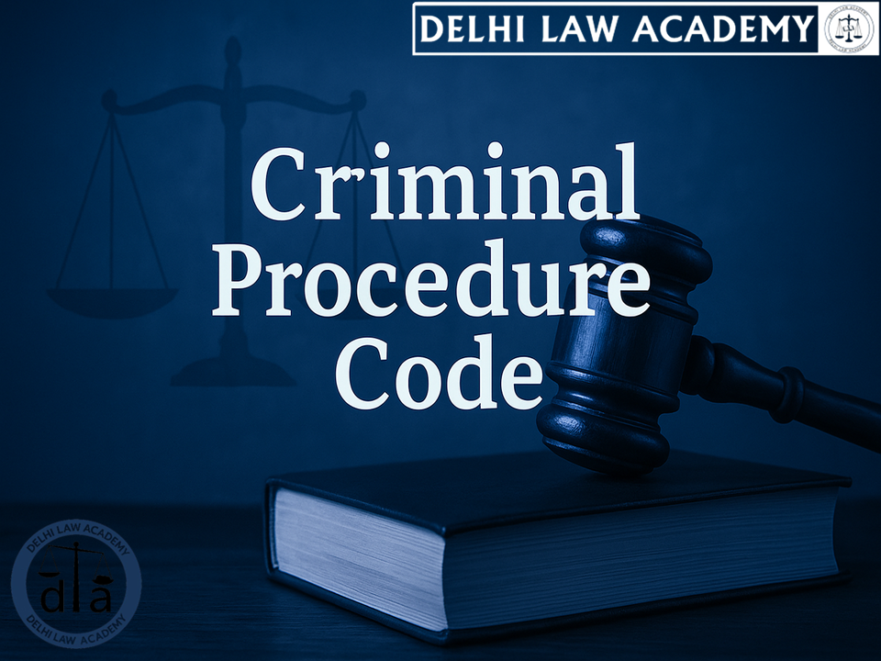
📘 CrPC Test 2 – Fully Solved for Judiciary Exams
The Criminal Procedure Code forms the bedrock of civil law. Its thorough knowledge is a must for all aspirants of RJS, DJS, PCS(J) or any other Judicial Service exam.
To help such aspirants, Delhi Law Academy Jaipur has launched a series of fully solved tests on all important aspects of this vital part of the syllabus.
⚖️ CrPC Test 2 [Fully Solved]
Solution:
Section 321
- The Public Prosecutor or Assistant Public Prosecutor in charge of a case may, with consent of Court, at any time before the judgment is pronounced, withdraw from the prosecution of any person.
Solution:
Section 304
- Where, in a trial before the Court of Session, the accused is not represented by a pleader, and where it appears to the Court that the accused has not sufficient means to engage a pleader, the Court shall assign a pleader for his defence at the expense of the State.
Solution:
Section 39
- Every person, aware of the commission of, or of the intention of any other person to commit, any offence punishable under any of the following sections of IPC shall forthwith give information to the nearest Magistrate or police officer of such commission or intention.
Solution:
Section 54A
- Where a person is arrested on a charge of committing an offence and his identification by any other person is considered necessary for investigation, the Court may, on request of the officer in charge of a police station, direct the person so arrested to subject himself to identification.
Solution:
Section 125
- If any person having sufficient means neglects or refuses to maintain… a Magistrate of the first class may order such person to make a monthly allowance for maintenance of his wife or such child, father or mother…
Ans:
- Mohd. Ahmed Khan v. Shah Bano Begum [1985]
Ans:
Section 438
- When any person has reason to believe that he may be arrested on an accusation of having committed a non-bailable offence, he may apply to the High Court or the Court of Session for a direction under this section; and that Court may direct that in the event of such arrest, he shall be released on bail.
Ans:
Section 401
- In case of any proceeding the record of which has been called for by itself or which otherwise comes to its knowledge, the High Court may, in its discretion, exercise any of the powers conferred on a Court of Appeal by sections 386, 389, 390 and 391 or on a Court of Session by section 307.
Ans:
Section 8
- The State Govt may declare that any area in the State comprising a city or town whose population exceeds one million shall be a metropolitan area.
Ans:
Section 203
- If, after considering the statements on oath of the complainant and witnesses and the result of the inquiry or investigation u/s202, the Magistrate is of opinion that there is no sufficient ground for proceeding, he shall dismiss the complaint.
Ans:
Section 468
- The period of limitation shall be:
- (a) six months, if the offence is punishable with fine only
- (b) one year, if the offence is punishable with imprisonment upto one year
- (c) three years, if the offence is punishable with imprisonment exceeding one year but not exceeding three years
Ans:
Section 174
- When the officer in charge of a police station receives information that a person has committed suicide… he shall immediately give intimation thereof to the nearest Executive Magistrate empowered to hold inquests.
Ans:
Section 205
- Whenever a Magistrate issues a summons, he may dispense with the personal attendance of the accused and permit him to appear by his pleader.
Ans:
Section 164
- Any Metropolitan Magistrate or Judicial Magistrate may, whether or not he has jurisdiction in the case, record any confession or statement made to him in the course of an investigation or at any time afterwards before the commencement of inquiry or trial.
Ans:
Section 29(2)
- The Court of a Magistrate of the first class may pass a sentence of imprisonment upto three years or fine upto ten thousand rupees or both.
📚 Continue Your CrPC Preparation
Don’t stop here! Strengthen your knowledge of the Criminal Procedure Code with our other fully solved tests:
📘 Free Study Material for Judiciary Aspirants!
Download our FREE study material prepared by Delhi Law Academy’s expert faculty.
Contact us
📍 Delhi Law Academy – Jaipur Branch
6C, Tower 2, Coaching Hub, Pratap Nagar, Jaipur – 302033
📞 Phone:
+91 9911916552
+91 8447285606
✉️ Email:
contactus@delhilawacademy.com

